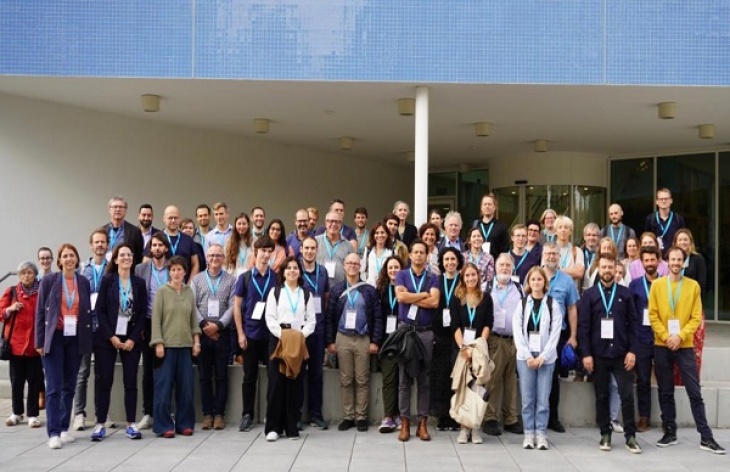A digital twin of blue diversity

30 partners from 14 countries come together for DTO-Bioflow. Foto: VLIZ- Flanders Marine Institute
The DTO-BioFlow project, which started in September, is funded by the EU's Horizon Europe program. It is coordinated by the Flanders Marine Institute (VLIZ) in Belgium. The project, with 30 partners from 14 countries, also including the Helmholtz-Zentrum Hereon, aims to integrate previously unavailable or hard-to-access marine biodiversity data into the biodiversity component of the EU Digital Twin Ocean over the next four years to provide a sustainable data flow for research. Marine habitats present a variety of challenges for observing, mapping, and monitoring biodiversity.
Even though significant progress has been made in Europe in collecting, harmonizing and making marine biodiversity data available, especially in European research infrastructure (such as EMODnet, Copernicus Marine and other European and international initiatives), much of the data is unavailable or inaccessible - hence it is referred to as "dormant data". This is exactly where the DTO BioFlow project comes in: The main goal is to "wake up" these dormant biodiversity data and enable a smooth integration into the Digital Twin. In addition, the project will use new technical methods to collect additional and high-resolution data and incorporate it into a Digital Twin in near real time.
The Hereon Institute of Carbon Cycles provides extensive data sets on plankton and particulate carbon. "DTO-BioFlow is a unique project to elucidate marine biodiversity and visualize it in the context of a digital twin and to observe consequences regarding growing anthropogenic impacts and climate change. Our digital camera systems provide an important contribution regarding possible changes in plankton biodiversity as well as changes in carbon storage capacities by the biological pump in a changing ocean. The digital twin is an outstanding tool for our scientific work as well as for communicating results to policy makers for the protection as well as the sustainable use of our world's oceans," says Dr Klas Ove Möller, Head of Department at the Helmholtz-Zentrum Hereon.
Further Infomation
Contact
Scientist
Phone: +49 (0) 41512 87-2371
Institute of Carbon Cycles
Helmholtz-Zentrum Hereon
Press Officer
Phone: +49 (0) 4152 87-1648
Communication and Media
Helmholtz-Zentrum Hereon
